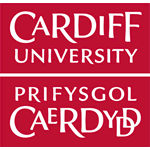
About the course
Course content
The MSc Advanced Computer Science with Placement offers students exposure to key topics that are driving emerging technological developments and trends.
Computer Science is one of the fastest moving academic disciplines and the outcomes of research and innovation in this field could have a massive social impact.
The subject spans all aspects of modern life, and this programme offers you the opportunity to apply new skills and advanced techniques to the area of your choice, whilst allowing you to demonstrate that you are at the forefront of your discipline.
Core to this programme is the opportunity to further develop the scope of your problem solving skills by studying advanced programming languages and new programming paradigms.
You will choose to study optional, research-led modules that allow the freedom to build a distinctive personal portfolio of skills and knowledge. These are structured around advanced topics in the School's three core research areas:
• Complex Systems
• Visual Computing
• Data and Knowledge Engineering
You may choose to apply for a paid 7-12 month professional work placement to be undertaken on completion of Spring semester and before completing the MSc course with a 60-credit dissertation. This provides valuable work experience to develop your IT Professional skills.
Distinctive features
• An advanced computer science degree.
• Designed for computing graduates who wish to differentiate themselves further through an advanced mastery of the discipline.
• In addition to coverage of core advanced computer science topics, students may further differentiate themselves by selecting from up to two of three research topics in which to specialise (Complex Systems, Visual Computing, Data and Knowledge Engineering).
• 7-12 month experience as an IT Professional for students who successfully find a suitable placement.
Structure
Students will undertake a placement following the taught stage of the course and prior to undertaking their individual project and dissertation. Most students start their placement in the summer of Year 1. The breakdown is as follows:
Year 1: 20 credits core modules, 100 credit optional modules.
Year 2: 120 credits placement, 60 credits dissertation.
This is a full-time course undertaken over two calendar years. It is also available as a full-time course over one year or a part-time course over three years, both without placement.
You will undertake an individual research project and complete a dissertation (worth 60 credits) under the supervision of a member of academic research staff.
Year one
This specialist Master’s degree will provide graduates of computing with the opportunity to enhance your knowledge, skills and understanding of the subject through modules taught by research experts in their specialist area.
As well as being taught a compulsory module on new programming paradigms, you will choose from a range of carefully selected modules focusing on contemporary and relevant topics currently emerging within the discipline.
Core modules:
Programming Paradigms
Optional modules:
Information, Network & Cyber Security
Security Techniques
High Performance Computing
Visual Computing
Pattern Recognition and Data Mining
Computer Science Topic 1: Web and Social Computing
Distributed and Cloud Computing
Human Centric Computing
Informatics
Digital Forensics
E-Commerce and Innovation
Secure Applications, Identity and Trust
Year two
Your work placement will normally last between 7 and 12 months, usually taking place at the end of the spring semester in July between the taught elements of the course and your final dissertation, allowing you to practice the new skills you have learned and apply the knowledge you have acquired, in the workplace.
You will return to university following successful completion of your work placement at the start of the summer semester the following year to undertake your individual project and write your dissertation, with the aim of completing the course within 24 months of entry.
Core modules:
Placement
Dissertation
Teaching
The School of Computer Science and Informatics has a strong and active research culture which informs and directs our teaching. We are committed to providing teaching of the highest standard and received an excellent report in the most recent Quality Assurance Agency (QAA) review.
Modules are delivered through a series of either full or half-day contact sessions, which include lectures, seminars, workshops, tutorials and laboratory classes.
Most of your taught modules will have further information for you to study and you will be expected to work through this in your own time according to the guidance provided by the lecturer for that module.
Support
All students are allocated a personal tutor who will monitor your progress throughout your time at university and will support you in your personal development planning. You will see your Personal Tutor at least once each semester.
Our Senior Personal Tutor can also advise and respond to any personal matters as they arise. The School also has a formal student-staff panel to discuss topics or issues of mutual interest.
Students are responsible for obtaining their placement. The School actively assists students on “with Placement” courses in finding a suitable placement.
Feedback:
Feedback on coursework may be provided via written comments on work submitted, by provision of ‘model’ answers and/or through discussion in contact sessions.
Assessment
The taught modules are assessed through examinations and a wide range of in-course assessments, such as written reports, extended essays, practical assignments and oral presentations.
The placement is assessed through a reflective report that demonstrates that the student has developed skills as an IT Professional.
The individual project and dissertation will enable students to demonstrate their ability to build upon and exploit knowledge and skills gained to exhibit critical and original thinking based on a period of independent study and learning.
Career prospects
Graduates from this course will be ideally placed to pursue a number of careers, such as systems architects, programmers and software developers, and could also pursue a research career via doctoral studies.
The selection of modules on offer aim to enhance your transferable skills and boost employment prospects.